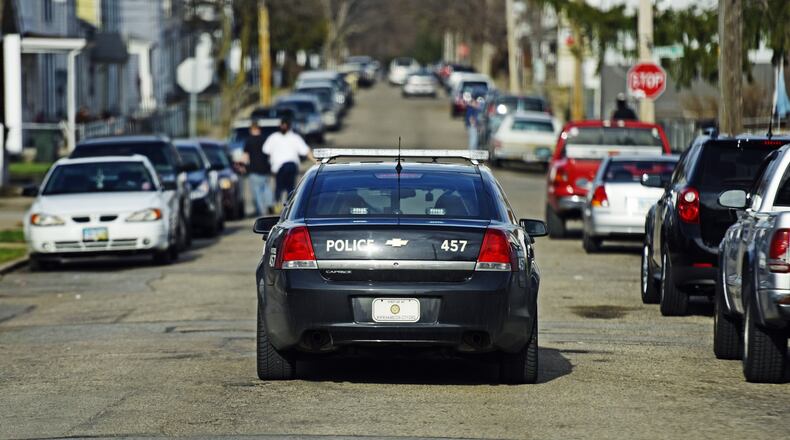The city’s ordinance review committee had an audience of about 50, and heard from 21 landlords and others, including several members of an ad-hoc committee that had formulated the proposed legislation. Most supported the legislation, some with concerns about the details. Others urged officials to amend it before it is approved to protect owners’ constitutional rights.
Charles Tassell, director of government affairs for the Greater Cincinnati Northern Kentucky Apartment Association, who led the ad-hoc committee that developed the legislation, said, “None of us want criminals in property. We also don’t want property owners who are going to allow criminal activity just to continue unabated.”
Once a designee of the city manager declares a property to be a chronic nuisance, owners could face repeated civil fines of $250 per police call to their homes, businesses or apartment complexes, plus the complete costs faced by police, including their salaries, in visiting their premises.
Jim Cohen of Blue Ash-based CMC Properties, which is developing The Marcum, an apartment and retail development in downtown Hamilton, also was on the ad-hoc committee and told the panel Wednesday: “Crime is not random…. Landlords can control the conduct in places they manage.”
“Approve it quickly,” Cohen urged, saying much of the crime that happens during the year occurs in June, July and August. “There’s no reason to wait.”
Missy McCall of Middletown, who helped craft the legislation, agreed with that sentiment: “We all know that things get a little crazier, the hotter out it gets,” she said.
After approval without dissent on Wednesday by the ordinance-review panel, council is to consider the legislation at its June 14 and 28 meetings.
One organization opposing of the proposed ordinance as it now stands was the Butler-Warren Association of Realtors, represented by its president, Kelly Umbstead of Coldwell Banker.
“While we applaud the commission on their efforts to make the city of Hamilton a better place to live, work and play, we feel the … ordinance, as it is currently written, is deeply flawed.”
Umbstead said after consulting with legal counsel at the National Association of Realtors, her organization is concerned the legislation would violate property owners’ due-process rights.
She expressed several concerns:
- The ordinance would not require that somebody be convicted of illegal activities — meaning "mere allegations that a tenant or third party, including a trespasser on the property, committed a crime."
- Property owners or their tenants could be victims of a crime and find themselves subject to the nuisance legislation.
- A single felony drug allegation would be enough to declare a property a chronic nuisance.
- The legislation allows the city and owners to create a written plan to eliminate the nuisance situation, but the legislation does not define what that would entail.
Such legislation “is definitely something that needs to be done in the city,” Umbstead said, but added that the organization is “prepared to fight” the current version of it, with the backing of the state and national associations of Realtors: “We would rather work with the city than fight against an unfair ordinance.”
Police Chief Craig Bucheit, a member of the ordinance-review panel, and Assistant Law Director Kathy Dudley responded to those concerns.
Police staff who review incidents at properties will be careful to weed out incidents where tenants or others associated with a property were victims, rather than perpetrators, of crimes, they said. They also noted the legislation is targeted, with the exception of felony drug offenses, at ongoing criminal activities on properties.
State law for decades has required landlords to evict tenants because of drug offenses, but that seldom happens, and one felony offense constitutes a nuisance under state law, Bucheit said. That’s one of many reasons “we need a local ordinance,” he said.
McCall noted the ad-hoc committee that created the ordinance will continue to be available 6-12 months to evaluate how it works, and will be willing to consider changes to the law. The committee will be considering other legislation, such as how to register landlords of all city apartments and conduct inspections of them.
City officials and proponents of the ordinance emphasized that the objective is not to declare properties nuisances. Instead, the aim is to inform property owners of problems so they can be remedied by developing plans to solve the issues, including by evicting tenants.
Several of the 21 people who spoke said it would be a good idea for the city to let landlords know about incidents on their properties as soon as they happen — such as by email — so the owners immediately can take action.
Council Member Rob Wile, a member of the ordinance-review panel, in voting to send the matter to council, said, “I think this is a first step — and maybe an imperfect (one) — but a first step.”
Vice Mayor Carla Fiehrer, the panel’s chairwoman, agreed, adding, “The real victims are the ones who live next door to these homes…. We’re going to be watching very carefully (how the ordinance works, so changes can be made, if necessary).”
About the Author
